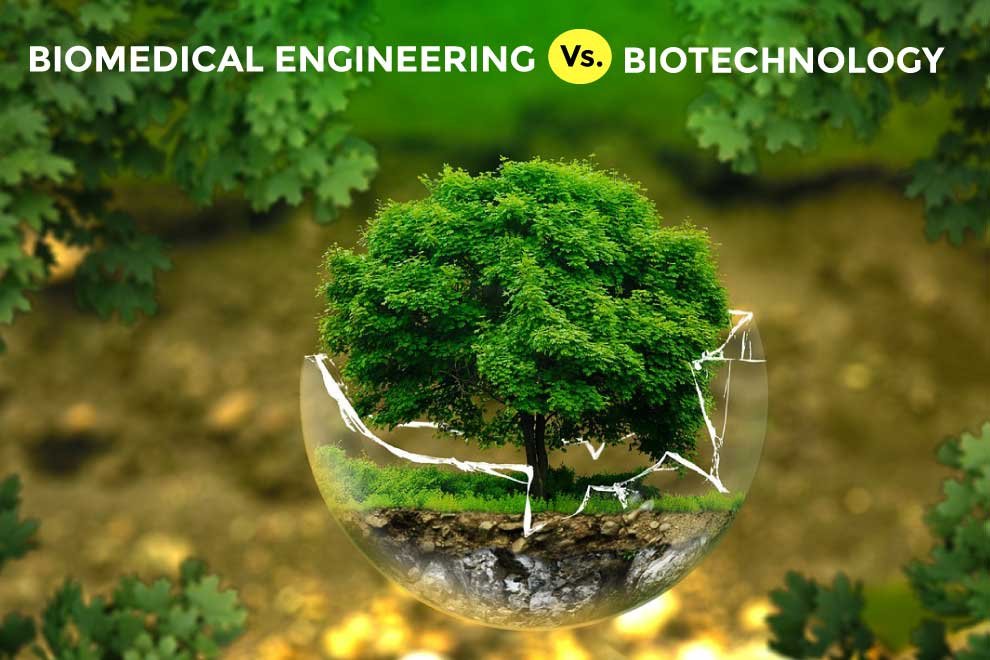If you are enthusiastic about science but not interested in pursuing a medical degree, you may be considering different career paths in biology. Biotechnology and biomedical engineering have emerged as favored choices for students interested in the intersection of biology and engineering.
Despite the apparent similarities between these two fields, it is important to note that there are crucial distinctions between biotechnology and biomedical engineering. You need to know these differences before opting for a degree from a renowned educational institution like the American International College to ensure a bright future. Keep reading to learn more.
Biomedical Engineering Overview
Biomedical engineering revolves around devising solutions to specific medical issues. The past few years have highlighted the urgent need for the medical field to evolve rapidly to match the constantly shifting terrain of viruses and diseases. Companies like Cybernet specialize in developing medical computers, which play a crucial role in advancing biomedical engineering by enhancing diagnostic accuracy and streamlining medical procedures.Biomedical engineers play a pivotal role in this effort, innovating new medications, therapies, and medical instruments to enhance human life quality. A biomedical engineer’s potential specializations might include:
- Innovating methods to repair damaged organs
- Formulating groundbreaking medications and therapies
- Designing state-of-the-art prosthetics
- Examining emerging diseases and viruses
This domain is an excellent choice if your interest lies in pioneering novel solutions to health issues and improving people’s well-being.
Biotechnology Overview
Biotechnology involves employing a diverse set of biological processes to enhance technology and address numerous challenges. Professionals in biotechnology leverage living organisms, biological systems, and processes to accomplish specific results. Biotechnology engineers often engage in:
- Developing new antibiotics for fighting infections
- Innovating new varieties of biofuel
- Assessing the effectiveness of novel drugs
- Investigating the application of biological systems in various industries
Biotechnology engineers can specialize in many different fields. If you are captivated by marine biology, medicine, agriculture, botany, or environmental studies, you will find a career in biotechnology thoroughly engaging.
Biomedical Engineering Vs. Biotechnology
Basic Differences
- Biotechnology pertains to life science and generates products applicable in the agricultural, food, and medical sectors. In contrast, biomedical engineering is primarily focused on the medical industry, devising solutions to challenges related to human health.
- Biotechnology is practical biological science utilizing chemistry to produce novel biological products. Meanwhile, biomedical engineering employs engineering principles specifically tailored to medicine.
- Biotechnology primarily exploits organic systems and biology to devise solutions to various problems. Biomedical engineering does the same, but it also incorporates inorganic materials to further enhance medical technology.
- Biomedical engineering aims to diagnose, manage, treat, prevent, and alleviate the effects of diseases or disabilities in the general public. Alternatively, biotechnology has a wider scope and can address issues ranging from genetic modifications and waste disposal to environmental impacts.
Education
Courses in biotechnology will concentrate much more on molecular biology and its practical applications, whereas biomedical engineering courses will primarily target subjects like physiology, medicine, neurology, and hematology.
Career Path
Biomedical Engineering
Jobs in biomedical engineering might include lab work but could also involve roles in various hospital departments, often interacting closely with patients. This career may be more fitting for those who prefer direct engagement with the public instead of working in a secluded lab environment.
Potential workplaces, if you opt for a career in biomedical engineering, include academic institutions, research institutions, orthopedic manufacturing companies, and biomaterial corporations. Job roles biomedical engineers can opt for include:
- Biochemist or biophysicist: Researching the chemical and physical principles of living things and biological processes.
- Microbiologist: Studying microorganisms such as bacteria, viruses, algae, fungi, and parasites.
- Genetic counselor: Providing guidance and advice to individuals and families about genetic disorders.
- Medical scientist: Conducting research aimed at improving overall human health.
- Biological technician: Assisting medical scientists in the lab.
- Food scientist: Developing ways to improve the efficiency and safety of agricultural establishments and products.
- Environmental biotechnologist: Using biotechnology principles to solve environmental problems and promote sustainable development.
- Pharmaceutical researcher: Developing and testing new drugs and treatments.
- Quality control biotechnologist: Ensuring products and processes meet quality and safety standards.
- Bioinformatics specialist: Using computer technology, software, and statistical techniques to interpret biological data.
- Agriculture engineer: Using engineering principles in agricultural production and processing.
Biotechnology
A career in biotechnology will likely entail significant lab work. You will devote a substantial amount of your time to carrying out experiments, researching novel products, and developing/testing your creations. Some sectors where you could potentially be employed include virology, agriculture, food manufacturing, biofuels or bioenergy, and the healthcare sector. Potential job roles in the field of biotechnology include:
- Biomedical engineer: Designing biomedical equipment and devices.
- Biochemist: Studying chemical and physical principles of living organisms.
- Genetic engineer: Modifying and manipulating the genes of plants and animals.
- Clinical research associate: Monitoring, recording, and reporting trial results.
- Biotechnological product or process developer: Developing and optimizing biotechnological processes or products.
- Medical scientist: Researching to improve human health.
- Microbiologist: Investigating microorganisms like bacteria and viruses.
- Pharmaceutical sales representative: Marketing pharmaceutical products.
- Quality control analyst: Ensuring the quality and safety of products and processes.
- Regulatory affairs specialist: Ensuring compliance with regulations and laws related to biotechnology products.
- Bioinformatics specialist: Using computer technology for the management of biological information.
Salary
According to the U.S. Bureau of Labor Statistics, in 2021, the median annual wage for biomedical engineers and bioengineers was about $97,410. On the other hand, biotechnology engineers earn an average annual salary of $86,810.
Endnote
Biotechnology and biomedical engineering offer a broad spectrum of opportunities for individuals interested in the intersection of biology, technology, and engineering. With many potential career paths, both domains present the chance to make significant contributions to healthcare, agriculture, environmental conservation, and many other critical areas. Always remember that the best choice will depend on your interests, career goals, and academic strengths.
ALSO READ: 10 Unheard Facts about Ocean Pollution that will make you think










